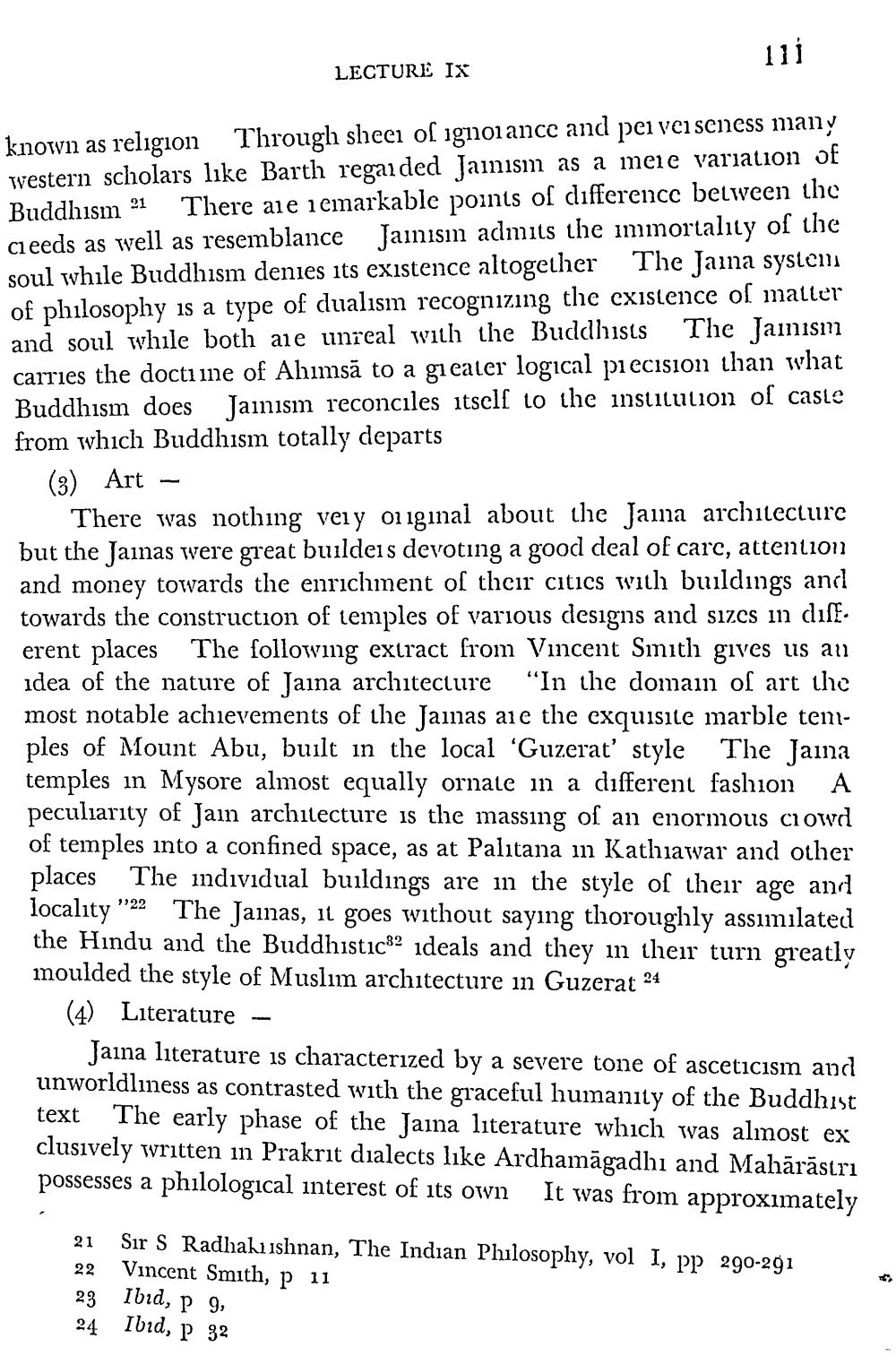________________
111
LECTURE IX
known as religion Through sheei of ignoiance and pei veiseness many western scholars like Barth regarded Jainism as a mere variation of Buddhism 21 There are iemarkable points of difference between the cieeds as well as resemblance Jainısın admits the iminortality of the soul while Buddhism denies its existence altogether The Jama system of philosophy is a type of dualism recognizing the existence of maller and soul while both are unreal with the Buddhists The Jainism carries the docti ine of Ahimsā to a giealer logical precision than what Buddhism does Jainism reconciles itself to the institution of caste from which Buddhism totally departs (3) Art -
There was nothing very original about the Jaina architecture but the Jainas were great buildeis devoting a good deal of carc, attention and money towards the enrichment of their citics with buildings and towards the construction of temples of various designs and sizes in diff. erent places The following extract from Vincent Smith gives us au idea of the nature of Jaina architecture “In the domain of art the most notable achievements of the Jainas are the exquisite marble temples of Mount Abu, built in the local 'Guzerat' style The Jaina temples in Mysore almost equally ornate in a different fashion A peculiarity of Jain architecture is the massing of an enormous crowd of temples into a confined space, as at Palitana in Kathiawar and other places The individual buildings are in the style of their age and locality "22 The Jainas, it goes without saying thoroughly assimilated the Hindu and the Buddhistic32 ideals and they in their turn greatly moulded the style of Muslim architecture in Guzerat 24
(4) Literature -
Jaina literature is characterized by a severe tone of asceticism and unworldliness as contrasted with the graceful humanity of the Buddhist text The early phase of the Jaina literature which was almost ex clusively written in Prakrit dialects like Ardhamāgadhi and Mahārāstri possesses a philological interest of its own It was from approximately
21 Sir S Radhaku ishnan, The Indian Philosophy, vol I, pp 290-291 22 Vincent Smith, p 11 23 Ibid, p 9, 24 Ibid, P 32




